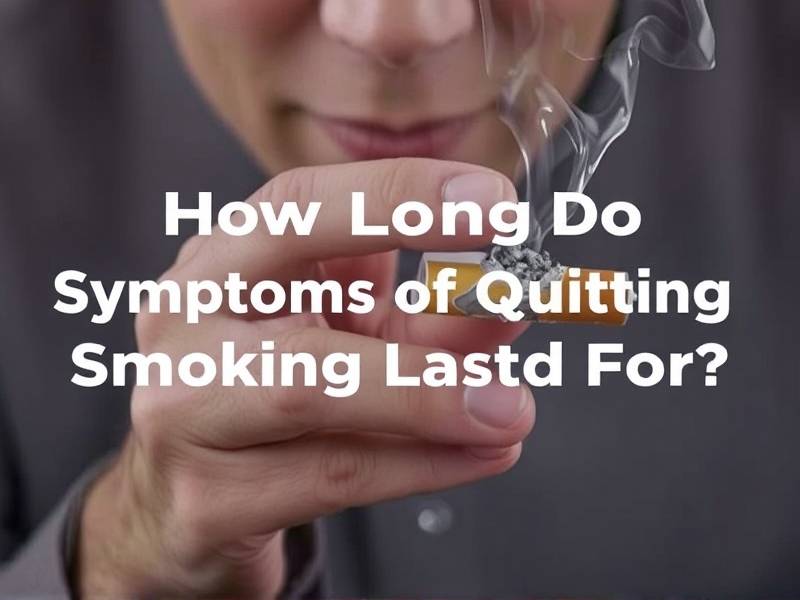How Long Do Symptoms of Quitting Smoking Last For?
Understanding the Timeline of Smoking Cessation Symptoms
Introduction

The journey to quit smoking is challenging, and one of the most common questions among smokers looking to quit is: How long do symptoms of quitting smoking last? This article delves into the duration and nature of these symptoms, offering insights to help you navigate through this critical phase of your journey.

What Are the Symptoms of Quitting Smoking?
When you stop smoking, your body undergoes a series of changes. The most common symptoms include:
- Nicotine Withdrawal: This is a physical response to the absence of nicotine in your system. Symptoms can include irritability, anxiety, headaches, and difficulty concentrating.
- Coughing and Breathing Issues: As your lungs start to heal, you may experience increased coughing and breathing difficulties.
- Weight Gain: Many people gain weight after quitting smoking due to changes in metabolism and appetite.
How Long Do These Symptoms Last?
The duration of these symptoms can vary from person to person. Here's a breakdown:
- Immediate Relief: Within 48 hours of quitting smoking, your carbon monoxide levels drop significantly, and your blood circulation improves.
- Nicotine Withdrawal Symptoms: These typically peak within 3-4 days after quitting but can last for several weeks.
- Respiratory Symptoms: As mentioned earlier, coughing and breathing difficulties may persist for several weeks or even months as your lungs heal.
- Weight Gain Concerns: While some weight gain is inevitable due to changes in metabolism, it's essential to focus on healthy eating habits and regular exercise.
Tips for Managing Quitting Symptoms
Here are some strategies that can help you manage the symptoms:
- Stay Hydrated: Drink plenty of water to help flush out toxins from your body.
- Exercise Regularly: Physical activity can boost your mood and energy levels.
- Seek Support: Join a support group or talk to a therapist for additional guidance.
- Mindfulness Techniques: Practices like meditation or deep breathing exercises can help manage stress.
Conclusion
Quitting smoking is a significant step towards better health. While it's true that the symptoms associated with quitting can be challenging, understanding their timeline can help you prepare for this phase. By adopting healthy habits and seeking support when needed, you'll be well on your way to a smoke-free life.
